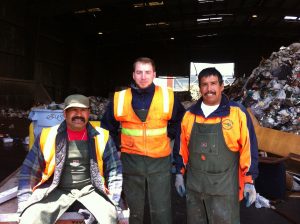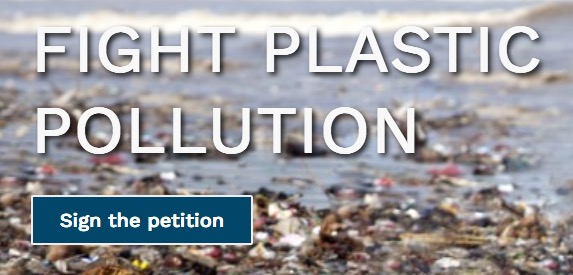By David Krueger, NCRA President, 6/9/20
Editors note: Most, but not all of these links are downloadable pdfs.
There has been a lot of confusion lately about whether or not stores and restaurants are allowed to let customers bring their own shopping bags, mugs, or other reusable items. While the State does not prohibit reusables, local jurisdictions are allowed to have COVID-19 regulations that are stricter than the State’s. (Packaging Law, 4/22/20)
On March 16, 2020 Alameda, Contra Costa, Marin, Santa Clara, Santa Cruz, and San Mateo Counties, plus the City and County of San Francisco and the City of Berkeley issued identical Shelter-in-Place Orders. (APNews, 3/16/20) These Orders all contained the same language on reusables, found in Appendix A: Social Distancing Protocol, Measures to Prevent Unnecessary Contact, which is a checklist for businesses to follow. The specific language was: __ Not permitting customers to bring their own bags, mugs, or other reusable items from home.
Relaxed Restrictions
The Shelter-In-Place Orders have been changing rapidly since March, and the Bay Area jurisdictions listed above no longer have identical Orders.
Alameda County, (Page 6) and the City of Berkeley, (Page 7) now state: “Customers are permitted to bring their own bags, mugs, or other reusable items from home, but they must not place them on any surfaces.” Stopwaste is seeking clarification from Alameda County and the City of Berkeley regarding the definition of “surfaces” before educating the public about this new Order.
Santa Clara County (Page 4) still says “Do not allow customers to use their own cups or other reusable food containers from home for takeaway”, but allows customers to use their own shopping bags as long as businesses “Require customers using reusable bags from home to bag their own groceries”.
Still Prohibiting Reusables
Contra Costa County, (Page 2)
Marin County, (Page 6)
Napa County, (Page 2)
San Francisco, (Page 2)
San Mateo County, (Page 2)
Santa Cruz County, (Page 2)
Solano County – TBD
Sonoma County, (Page 3)
NCRA Recommendations and Suggested Actions
NCRA and Californians Against Waste recommend using Mendocino County’s (Attachment A, Page 24) language regarding reusables: “Not permitting customers to bring their own bags, mugs, or other reusable items from home that must be handled by employees. Customers bringing their own reusable items that do not require handling by employees is permissible.”
We also recommend that customers be allowed to bring their own reusable shopping bags as long as the customers and the store follow the Cal-OSHA guidelines for the safe use of reusable bags (pdf):
-
- Bags are not placed on conveyor belts or any other area outside of shopping carts.
- Bags make no contact with employees.
- Customers bag their own groceries.
- Customers do not bag groceries in the checkout area if they cannot maintain physical distancing. Groceries can be placed in a cart and bagged elsewhere by the customer.
- Increase the frequency of disinfection in bagging areas used by customers.
On April 21, 2020 NCRA sent letters to six of the prohibiting jurisdictions listed above encouraging them to allow reusables. On April 27, 2020, NCRA signed on to the attached letter organized by Upstream Solutions. On June 10, we sent eight letters encouraging the receiptant jurisdiction revise their order as per Mendocino County’s (Attachment A, Page 24) . (See each (NCRA LETTER) in Health Officer List below.
What Can You Do?
1. SHOP WITH REUSABLES
When reusables are “legal” again, shop at establishments that allow them and encourage others to follow. Note that some stores and restaurants may still choose to prohibit reusables even if they are not required to.
Here is bagging advice from Zero Waste Sonoma: However, you can still use reusable bags; just leave them in your vehicle, or if you don’t drive to the store, keep them in a backpack or handbag, and ask the bagger to place groceries directly into the cart at checkout. When you exit the store, transfer items from the cart into your bags. As an extra precaution, wash your bags between uses.
2. WRITE YOUR HEALTH OFFICER
Please write your local health officials to allow reusables again. Encourage them to adopt the Mendocino County Attachment A language. “Not permitting customers to bring their own bags, mugs, or other reusable items from home that must be handled by employees. Customers bringing their own reusable items that do not require handling by employees is permissible.” (See each (NCRA LETTER) in Health Officer List below.
Bay Area Health Officials and Sample Letters
Dr. Erica Pan, Interim Health Officer (NCRA LETTER)
Alameda County Public Health Department
1000 Broadway Suite 500, Oakland, CA 94607
510 267-3200, Erica.Pan@acgov.org
Lisa B. Hernandez, MD, MPH, Health Officer (NCRA LETTER)
City of Berkeley, Health Housing, and Community Services
1947 Center Street, 2nd Floor, Berkeley, CA 94704
510 981-5308, Fax: 510 981 5395, lihernandez@cityofberkeley.info
Christopher Farnitano, MD, Health Officer (NCRA LETTER)
Contra Costa County Health Services
50 Douglas Drive, Suite 310-A, Martinez, CA 94553
925 957-2679, Chris.Farnitano@hsd.cccounty.us
Matthew Willis, MD, KPH, Public Health Officer and Benita McLarin, Director (NCRA LETTER)
Marin County Health and Human Services
3240 Kerner Boulevard, San Rafael, CA 94903
415 473-4163, bmclarin@marincounty.org; mwillis@marincounty.org
Tomás J. Aragón, MD, DrPH, Health Officer (NCRA LETTER)
San Francisco City and County Department of Public Health
101 Grove Street, Room 308, San Francisco, CA 94102
415 554-2710, tomas.aragon@sfdph.org
Scott Morrow, MD, MPH, Health Officer and Cassius Lockett, Director (SAMPLE LETTER)
San Mateo County Public Health Department (NCRA LETTER)
225 37th Avenue, San Mateo, CA 94403
650 573-2519, smorrow@smcgov.org; clockett@smcgov.org
Sara H. Cody, MD, Health Officer (NCRA LETTER)
Santa Clara County Public Health Department
976 Lenzen Avenue, 2nd Floor, San Jose, CA 95126
408 792-3798, sara.cody@phd.sccgov.org
Gail Newel MD, Health Officer (NCRA LETTER)
County of Santa Cruz Health Services Agency
Post Office Box 962, 1080 Emeline Ave., Santa Cruz, CA 95061-0962
831 454-4000, Fax: 831 454-4488, gail.newel@santacruzcounty.us
Dr. Sundari Mase, Interim Health Officer (NCRA LETTER I/P)
Sonoma County Department of Health Services
1450 Neotomas Avenue, Suite 200
Santa Rosa, CA 95405
# # #


